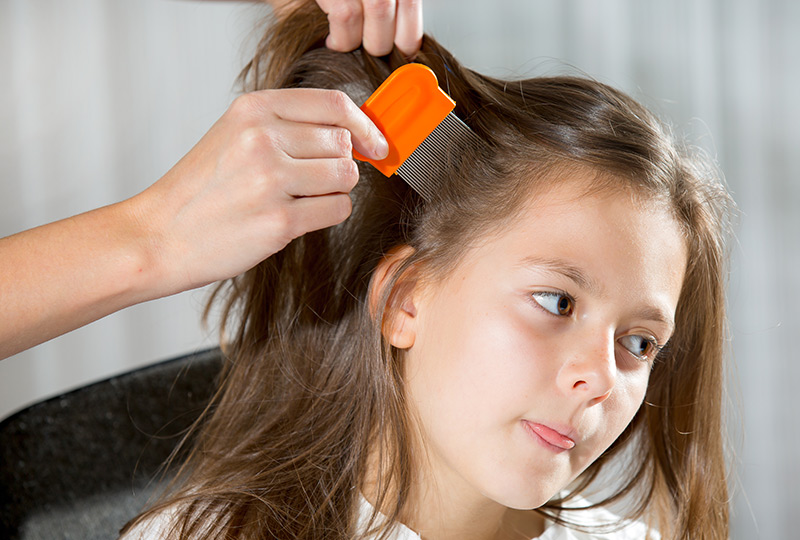Treatment-resistant lice can still be controlled.
A recent study showing that some lice may be resistant to over-the-counter treatments spread through social media like— well, like lice through a day care.
Kyong Yoon, Ph.D., of Southern Illinois University-Edwardsville, presented research reporting that samples of lice from 25 states may be increasingly resistant to chemicals called pyrethroids, the active ingredient in many lice treatments sold at drug stores. Lice from every Southern state, except Mississippi, Louisiana and Oklahoma showed pyrethroid resistance.
But before everyone starts compulsive head scratching or pulling children from school, take note: Head lice can still be controlled.
Results from one study do not prove all lice are resistant. Parents should try over-the-counter medications first. Sometimes multiple rounds of treatments are needed to kill the bugs.
Using a specialized lice comb in tandem with chemical treatments may reduce treatment times. Parents must comb the lice eggs, called nits, out their children’s hair every day until they see no more lice.
The CDC recommends that hats, scarves, bedding, small stuffed toys, clothing and towels used by children with lice should be machine washed and dried using hot water and hot air cycles. Lice and nits are killed by exposure for five minutes to temperatures greater than 129 degrees Fahrenheit.
It takes about 9 days for nits to hatch. Items that cannot be laundered may be dry-cleaned or sealed in a plastic bag for two weeks. Vacuum your furniture and your child’s car seat to remove nits that may re-infest the hair. Soak your family’s combs and brushes in hot water, at 130 degrees or higher, for 5 to 10 minutes.
If your child still has an infestation after home treatments, call your doctor, who may recommend a prescription treatment. The good news is that prescription treatments are effective at killing lice.
“While head lice are a nuisance, they do not transmit disease,” said Joseph Gigante, M.D., professor of Pediatrics at Vanderbilt University School of Medicine. “Hundreds of children die each year from the flu. Children do not get sick or die from head lice. Don’t panic if your child gets head lice.”

